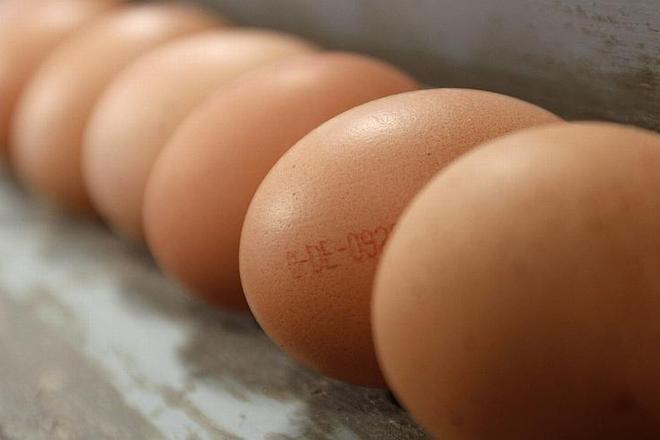EGGS and poultry from Germany are appearing on the shelves of Slovak supermarkets once again after tests conducted by Slovak authorities determined that there is no threat of dioxin contamination in any of the food products imported to the Slovak market from Germany since early January. The potential health threat, however, will impose some additional burdens on importers who must now attest that their products are dioxin-free.
German authorities said on January 11 that dioxin, a highly toxic chemical, had been discovered in pork as well as poultry products, widening a public health alert that had started on January 3.
After news about the potential dioxin threat reached Slovakia the Agriculture Ministry on January 5 ordered the State Veterinary and Food Administration to undertake immediate tests in retail stores and wholesale repositories and temporarily banned the sale of eggs and poultry imported from Germany until the results of Slovak laboratory tests were known.
The ministry reported on January 10 that during its inspection it found over 356,000 eggs imported from Germany by Bayern-Ei GmbH on January 3 in Ružomberok in north central Slovakia. Samples were tested for dioxin and the Agriculture Ministry announced on January 12 that the tests were negative and immediately lifted the ban on German eggs.
Importers, however, are obliged to declare that the goods they import do not come from the area of Germany where the dioxin feed-contamination occurred and that the imported products are dioxin-free.
All regional offices of the State Veterinary and Food Administration in Slovakia were ordered to regularly monitor all egg warehouses and all final destinations for eggs, egg products, fresh poultry and products made from poultry as well as all fresh pork and pork products. Retail stores are being monitored as well.
German authorities stated that based on its currently available information no contaminated products had been exported to Slovakia, according to a statement on the website of the State Veterinary and Food Administration posted on January 4.
German eggs sold in December
According to the Agriculture Ministry, more than a million eggs produced in Germany were imported and sold in Slovakia during December 2010. Also, more than 42,500 kilograms of fresh pork was imported from Germany and sold between January 2 and January 6, 2011.
“Minister [Zsolt] Simon therefore regards the temporary suspension of sales of poultry and eggs of German origin on the territory of Slovakia as fully justified, given the need to secure the protection of consumers,” the ministry wrote in a media statement.
The ministry issued a new regulation on January 4 that requires importers to declare that their imported goods are suitable for consumption and that their meat and eggs have not come from contaminated fodder.
Minister Simon also reiterated that Slovakia will insist that importers mark the country of origin on the products rather than only showing that they originated in the European Union.
The possibility that dioxin-contaminated food products were being sold in the Slovak market has compelled the ministry to consider changing its food product legislation. The ministry stated that it will prepare an amendment to Slovakia’s law on food products which would introduce the duty for importers to declare the import date, place of origin, producer, content and the names of the purchasers of any imported food product.
The ministry noted that it is aware that the amendment must be in accordance with the EU’s principle of free movement of goods and said the amendment is expected to be presented for action during the first half of 2011.
Statements from retail chains
After news reports about the German dioxin contamination, Slovak supermarket chains stated to the media that they had not been selling meat or eggs produced in Germany. Only the Billa chain of supermarkets reported that it had terminated the purchase of 450 eggs because the importer was unable to specify the eggs’ country of origin, the Sme daily wrote.
The State Veterinary and Food Administration refused to specify which stores had sold the million eggs imported from Germany in December and said that it would consider publishing that list only if dioxin was detected in its tests.



 (source: Reuters)
(source: Reuters)